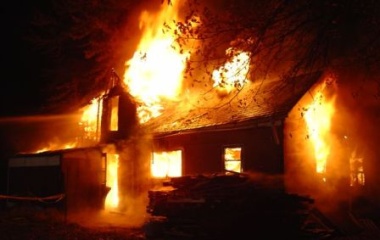
The intensity of (proper) Torah study and the seriousness of religious matters can--and too often does--lead to uncalled-for arguments, put-downs, and tragically, even violence. These peaceful sentiments are always appropriate and require constant repetition; they have been incorporated in our davening on Shabbat, the day devoted to peace (and daily for those who daven nusach sefarad).
What is it that specifically links these particular masechtot with this particular teaching? One might suggest that Yevamot, Nazir, and Kritot deal with notions of separation, with issues that can create strife; and hence, they conclude with the requirement of Torah scholars to bring people closer together.
Beginning with Yevamot, we are cognizant of how the death of a family member can lead to families drifting apart with little to anchor them together. There is no need to explain the potential for discord when a husband--likely young--dies. Being forced to marry a sister-in-law, or going through the purposely degrading ceremony of chalitzah, can be the antithesis of peace. And that is if everyone is co-operative. If the brother-in-law refuses to cooperate, there is no end to the strife caused. At the same time, yibum has the potential to bring peace to the soul of the deceased and to the widow, who remains in the family. As the Gemara notes, the Rabbis were to examine each case independently, advising whether yibum or chalitzah would be the more appropriate course of action.
A nazir is often a person not at peace with himself and his place in society, taking a vow of partial asceticism. Whether one is of the view that a nazir brings a sin offering for the "sin" of becoming a nazir (Rambam), or for leaving this heightened state of holiness (Ramban), a nazir is one who separates from society at large.
Masechet Kritot deals with the 36 major sins of the Torah that carry the penalty of karet, excision from the community of Israel. A message of peace is most appropriate here. More specifically, it is the role of the rabbis to create a climate where sin is minimized, helping to bring peace between man and man, and man and G-d.
We might even extend this notion to Masechet Brachot, which deals with the laws of prayer and blessings, i.e. the day-to-day rituals of Judaism meant to bring people closer to G-d. Too often, religious practice or lack thereof is the cause of much strife, discord, and hatred. It is wonderful to detail our relationship and religious obligations to G-d--but we must do so in ways that will lead to peace.
The Maharsha takes this notion a step further. He notes that in Masechet Yevamot, our Sages introduced laws that seemingly go against the Torah, such as allowing a woman to marry based on the testimony of one witness despite the Torah's insistence on two. While legal arguments were advanced to allow such, this was a most radical innovation and, as we discussed in our last post, not readily accepted by many of our Talmudic sages. In their discussion of the law, Tosafot goes so far as to explain that under certain circumstances (see here), the rabbis even have the right to actively[1] uproot laws of the Torah. The Maharsha explains that such is done in the name of peace, of preventing agunot. "One who has no spouse has no peace"[2]. Promoting peace is not only a nice platitude, but carries much legal weight.
The Maharsha refers us to two additional cases[3] where the law was formulated to reflect the primacy of the "trait of peace."
Back in the first chapter of the masechet, the Mishnah (Yevamot 13a) recorded a dispute between Beit Hillel and Beit Shammai regarding the case of a deceased brother who left behind two wives, one of whom is related to the surviving brother or his wife. According to Beit Hillel, since the brother may not do yibum with the related wife, neither yibum nor chalitzah need be done with either wife--both are free to marry whomever they like. Beit Shammai disagrees, arguing that the brother would need to do chalitzah with the unrelated wife (see here for a discussion of the nobility of this dispute).
The Gemara suggests that in order to satisfy all views, we might ask that chalitzah be done even if the widow has remarried in the interim. To this, the Gemara responds that to have some other man come and do chalitzah to "kasher" the union between husband and wife would be cause for the wife to be "disgusting" in the eyes of her husband. That may be true, the Gemara responds, but isn't Jewish law more important? After all, this couple is--according to Beit Shammai--living in sin. To this, the Gemara replies that such would be a violation of the verse, "Her ways are ways of pleasantness and all her paths are peace" (Mishlei 3:17).
In order to become a Torah scholar, one must master the vast corpus of Jewish law. That mastery must be a tool to bring greater peace to the world.
[1] That the rabbis have the right to passively uproot the laws of the Torah, such as by disallowing the blowing of the shofar on Shabbat, is agreed to by all.
[2] While the actual Talmudic expression--found, not surprisingly, in Masechet Yevamot--is "whoever has no wife has no joy" (Yevamot 62b), the Maharsha takes it as a given that it applies in the opposite formulation also. This is as good a time as any to mention that Moreinu Harav Shmuel Eidels (the full name of the Maharsha) adopted his (widowed) mother-in-law's name Eidel in appreciation for her financial support of his yeshiva.



